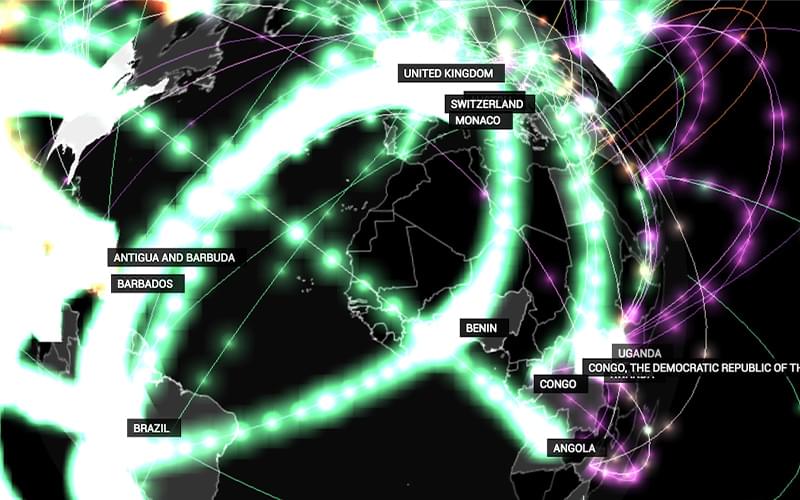Data visualization software shows details of the corruption network unveiled by the Operation Java Jato in several countries
- Luís Inácio Lula da Silva, former president of Brazil: sentenced in second instance to 12 years and a month in prison.
- Jorge Glas, vice-president of Ecuador: sentenced to six years in prison.
- Ollanta Humala, former president of Peru: sentenced to a year and six months in prison.
- Alejandro Toledo, former president of Peru: outlawed after an arrest warrant was issued for him.
- Maurício Funes, former president of El Salvador: sentenced for illicit enrichment and currently outlawed in Nicaragua.
- Ricardo Martinelli, former president of Panama: arrested and awaiting extradition in the United States.
All of those politicians are connected in a network of corruption unveiled by the “Operation Car Wash,” which is being conducted by the Brazilian Federal Police. The operation has proved the payment of billions of dollars in bribes, making it the biggest corruption scandal in history. This network goes well beyond those prominent players, involving hundreds of politicians and business people in several countries. Now, those connections can be seen in detail thanks to the data visualization tool developed by the Vortex Foundation in Colombia in partnership with the Humanitas360 Institute, based in the US with projects in various Latin American countries.
The platform includes a database with all the testimonies given to Brazil’s justice court in legal processes related to the Operation Car Wash. Thanks to the specialized protocols and the visualization software developed by Vortex, it is possible to navigate through the criminal network from a tridimensional perspective, zooming in into connections between particular politicians and companies or simply seeing the money flow and influence peddling between them.
The project reveals details of a complex criminal structure that links more than 906 individuals that established more than 2.693 documented interactions in different countries in the continent. Each interaction was analyzed in order to pinpoint and visualize the transacted resources, thus gaining a better understanding of the different forms of criminal operation within the network.
The results are gathered in a digital platform that combines the database and the data visualization tool – both can be accessed online. Currently, Vortex and Humanitas360 are working on establishing partnerships with communications companies and public prosecutors throughout Latin America so that they can have access to this exclusive system as a tool to generate new criminal and journalistic investigations.
Brazilian authorities estimate that this political corruption scheme and money laundering unveiled by the Operation Car Wash have involved at least 9.5 billion dollars. Its impact outside of Brazil started when executive directors of Brazilian companies such as the construction company Odebrecht, the petrochemical company Braskem, and the state-owned oil company Petrobras acknowledged, through a leniency agreement with the Department of Justice of the United States, paying bribes of over 1 billion dollars in several countries. In parallel with that, due to agreements to reduce prison sentences with the Justice Department of Brazil, politicians and businessmen reported corruption crimes in several countries in Europe, Africa and the Americas. All that data make up the database of the project developed by the Vortex Foundation with the support of the Humanitas360 Institute.

